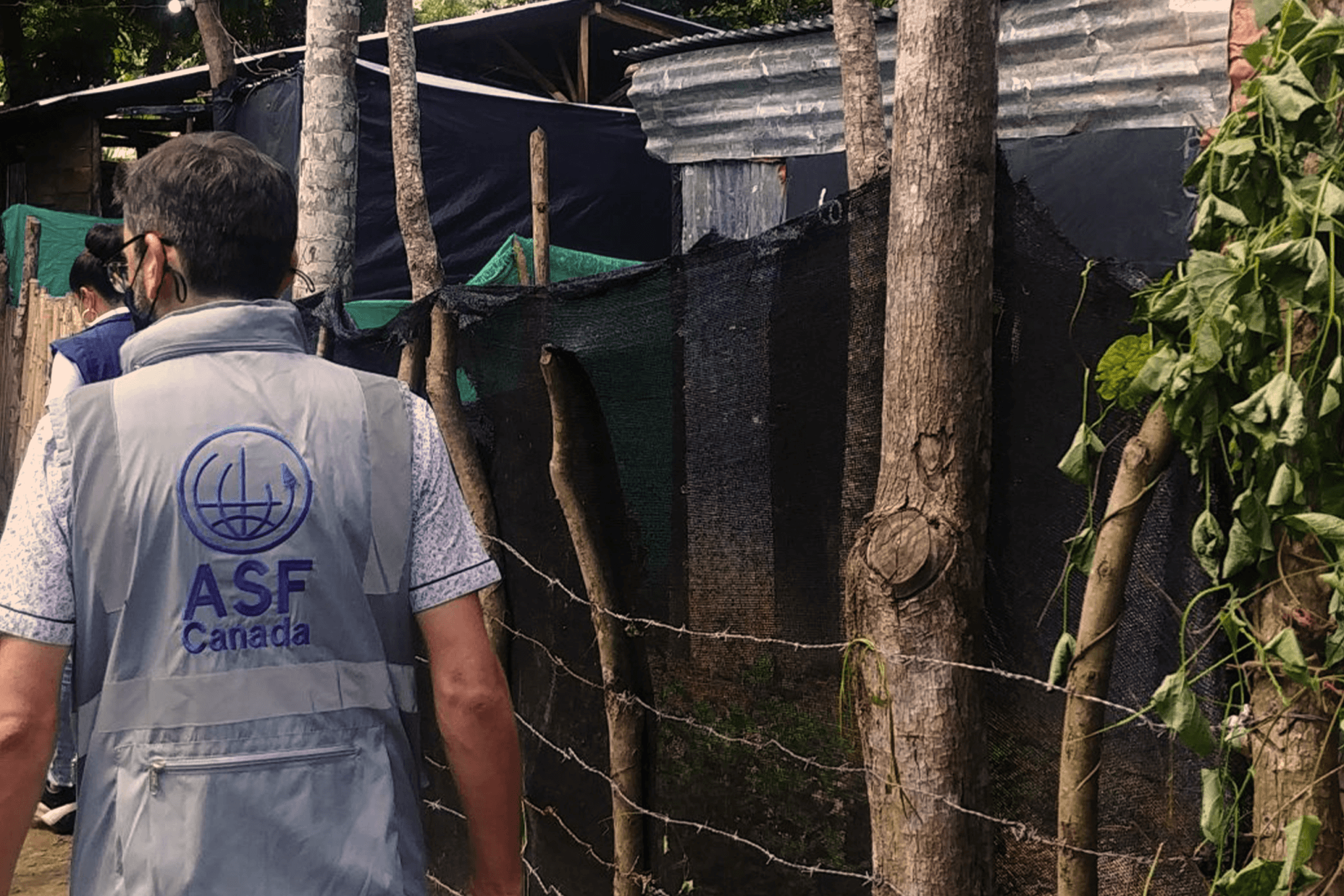
Our six principles of action, which we apply to all our projects and activities, are subsidiarity, cooperative interaction, complementarity, affirmation of human rights, professionalism and responsibility, as well as risk management.
Through our expertise in access to justice and our solid commitment to human rights, we seek to:
1) establish close partnerships with legal professionals, as well as civil society, in order to obtain tangible benefits for people in vulnerable situations;
2) achieve concrete and sustainable results within the communities where we carry out our collaborative projects;
3) make the law an instrument for inclusion, change and development.
This approach always respects the needs expressed by local stakeholders. It is carried out through outreach legal work, particularly in strategic litigation, legal aid services, and legal assistance.
Subsidiarity
All of the organisation’s projects are developed and implemented in close cooperation with one or more local partners (groups of human rights lawyers, civil society organizations, government agencies, etc.). Generally, LWBC does not defend human rights itself in the countries in which it operates: LWBC’s mission is more to increase the capabilities of its partners in the field in their work to defend and promote human rights.
For LWBC, the best human rights advocates are the local stakeholders. After all, they are on the frontline, and LWBC relies on their competence and expertise. With this in mind, LWBC bases its interventions on the needs expressed by local stakeholders, after an evaluation of the context and these needs. This, however, does not prevent LWBC from being totally committed to the causes it supports. LWBC sometimes participates directly in certain actions, in coordination with its local partners.
Cooperative action
LWBC values teamwork and team spirit and prefers to consider and present the results of its actions as the result of teamwork. LWBC’s internal and external relationships are structured accordingly, taking into account the fact that all parties concerned possess relevant expertise and skills. Similarly, partnerships provide LWBC with the opportunity for bilateral or multilateral exchanges.
Complementarity
LWBC favours partnerships and sharing information over competing with other organizations and, with a view to complementarity, seeks to coordinate its actions with those of other parties involved in justice and human rights work. This vision applies in the country of intervention, in Canada, and on a global level. Given the variety of contributions to the cause of human rights, LWBC believes that its core mission and its technical legal expertise are both unique and complement those of other organizations.
Affirmation of human rights
LWBC respects diversity in values, beliefs, and opinions. LWBC adapts to the cultural realities, customs, and practices of the countries, regions, communities and partners concerned by its interventions, in a spirit of tolerance and openness. However, this respect for diversity exists alongside a concrete commitment to LWBC’s other values and principles, especially its uncompromising support for the rights guaranteed by the international legal instruments that constitute the basis of LWBC’s actions. These include, for example, the right to life, liberty, and security of the person; sexual equality; non-discrimination; and opposition to the death penalty and torture.
Professionalism and responsibility
LWBC aims to incorporate best practices in all its spheres of action. More specifically, LWBC applies professional and ethical standards to international cooperation and financial management (particularly with regard to cost control and reduction), social and environmental responsibility, and sexual equality. Regarding the duties and responsibilities of lawyers, although LWBC does not act within the framework of a legal lawyer-client service relationship, the organization takes inspiration from the United Nations Basic Principles on the Role of Lawyers (1990), the Code of Professional Conduct of Lawyers of Quebec, and the Code of Professional Conduct of the Canadian Bar Association, insofar as they are relevant and taking into account any necessary adjustments.
Risk management
LWBC projects are implemented after a preliminary analysis of any associated risks and measures to minimize these risks. Its interventions are designed in order to maximize their effectiveness and sustainability, while reducing the risk to the safety of the people involved, among other risks. This is crucial given that LWBC often works in environments where peoples’ safety is at stake, including that of the beneficiaries of its activities and of local partners.
International support, which is at the heart of LWBC’s activities, is intended to have a positive impact on their safety. LWBC is nevertheless aware that this support can be a double-edged sword, and so follows a set protocol. Regarding LWBC representatives, applying safety regulations is crucial, not only for themselves, but also for the potential repercussions of their actions on the organization, other LWBC representatives, and third parties.